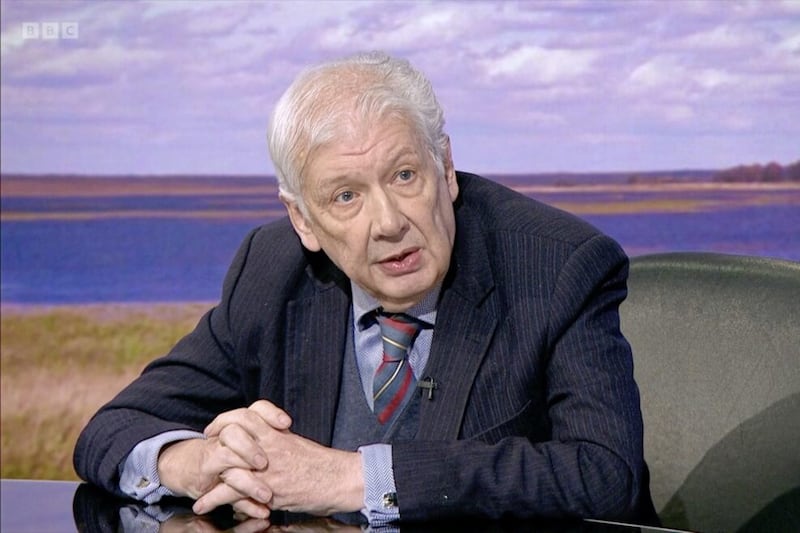When the grim economic outlook in Northern Ireland is discussed, it's not long before the question arises of how we can raise more money to fund our decaying public services. Invariably, the perennial issue of re-introducing prescription charges is raised.
Many contend that we can no longer afford free prescriptions and ask why the better-off should not pay for their medicines. Recent estimates have suggested that these healthcare charges could generate £20 million for the north’s depleted coffers.
For some it could be an ideal way of NI taking some fiscal responsibility and forcing its citizens to face the reality that nothing in life is free. Given the brutal budget, it is important to consider if prescription charges are worth it.
Generally, the arguments for introducing these charges are based around two key factors.
Firstly, they are viewed as a relatively easy and straightforward way of raising revenue. An additional £20 million is not to be sniffed at and could fund much needed mental health interventions or social care packages. However, it is important to stress that it represents a minuscule fraction of the £7.28 billion annual health budget. Also, selective payment schemes require extensive and complex machinery to administer them. Someone must check that those who should pay do pay and follow up on those suspected of evasion. These bureaucratic systems significantly eat into any money raised.
Secondly, charges deter, and they are designed to deter. They are considered an effective way of discouraging the use and misuse of 'scripts'. It is claimed that charges could substantially reduce demand as swathes of those who do not really need medication would stop asking for it.
Prescriptions are currently free in Wales, Scotland and Northern Ireland. In England there is charge of £9.65 per item on a prescription. There is also the option to avail of pre-payment schemes. For example, a 12 month prepayment certificate can be purchased for £111.60. This requires an upfront payment or a direct debit, something which could be problematic for the less well-off.
In England in 2018, almost 90 per cent of the 1.1 billion prescription items dispensed were free of charge because the patient was exempt from payment. Exemptions broadly relate to age, medical conditions and income; for example, medication is free to those over 60. Given the levels of chronic illness and disability in the north, it is likely that the figure would be higher here.
In England there is a long-running campaign to scrap charges as they are viewed as counterproductive and disproportionately negatively impact on the poor and vulnerable in society. The National Pharmacy Association argues that charging is a serious barrier which prevents individuals from taking essential medication, placing them at risk of worsening conditions.
Even low financial barriers have a significant impact on poorer people’s access to medicine and can impact on the effectiveness of treatment. Skipping medication leads to poorer physical and mental health outcomes. Missing prescription medication is particularly detrimental for those with mental illness, leading to relapse and the need for additional crisis interventions.
Research undertaken by The Prescription Charges Coalition, a group consisting of health charities, professional bodies and voluntary groups, highlights the insidious effects of these charges. One third of respondents in England with long-term conditions had not collected a prescription item due to cost. Almost a third admitted that they are skipping or reducing medication doses, with cost concerns a key factor for more than four out of 10 respondents.
As a direct result of reducing or skipping medications, nearly three in five (59 per cent) became more ill and 34 per cent needed to visit their GP or hospital. Half of those whose health had deteriorated had taken time off work.
In the current cost of living crisis, poorer people are facing a choice between paying for a prescription, heating their homes or buying food. Pharmacists are increasingly reporting patients asking for advice about which of their essential medications they can skip or do without.
In Northern Ireland prescription charges were abolished in 2010 by the then health minister Michael McGimpsey. He stated: “It’s an economic investment, as people will be able to get back to work earlier if they have the right medication. It’s also an investment in people, at a time when they need it most."
In the 13 intervening years the numbers dependent on prescription medication have soared, as have levels of chronic sickness and disability.
This grim picture is compounded by long waits for treatment. Hospital waiting lists in the north are by far the longest in the UK. Over one in three people are currently on a waiting list, typical waiting times across a range of specialisms have doubled to five or six years. Neurology, rheumatology and orthopaedics are essentially closed to new patients.
The consequences of this are severe and far reaching. Prolonged delays for surgery or treatment have left thousands of people living with chronic pain, discomfort and distress. The inability to access necessary care leads to worsening conditions, complications and a reduced quality of life.
Prescription charges bear no relationship to the cost of medicines and are in many ways a euphemism for a tax on the disadvantaged. This levy on poor health prevents people from managing their conditions.
Contrary to conventional wisdom, prescription charges are not any easy way of raising revenue. No-one in the sixth richest economy should be faced with barriers to essential healthcare and forced to make choices about rationing their healthcare.
Charges mean individuals may be reluctant to act on symptoms, fearful that they may need multiple medications. They erode the principle of free health care at the point of delivery and exacerbate existing health inequalities. They are counterintuitive as they are an obstacle to keeping people well and economically active. Complications, stress, delayed prognosis and disease progression cost the NHS more in the long run.
Rather than a money spinner, prescription charges are a bitter pill to swallow.








